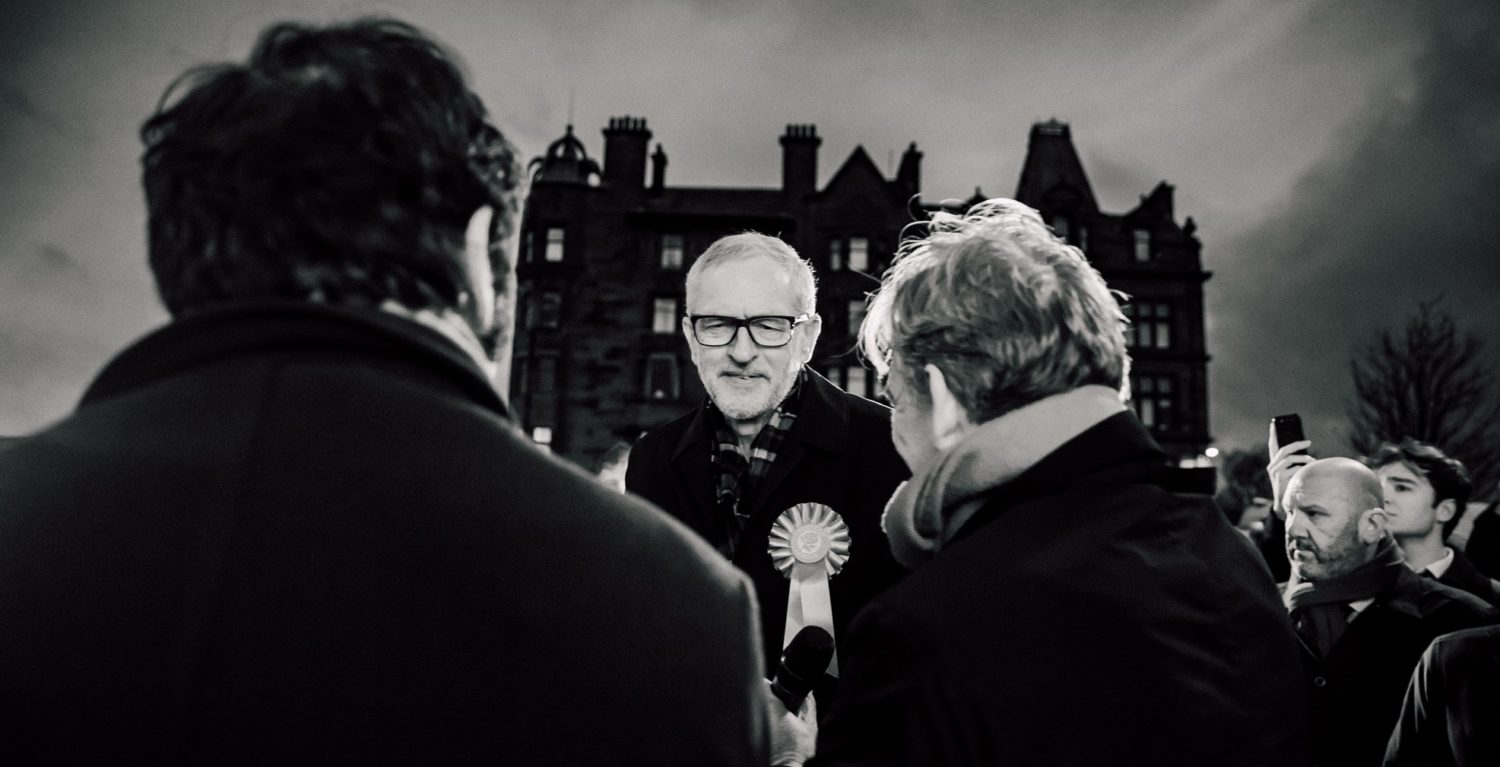The leadership factor
Corbyn and his team are to blame for Johnson’s crushing electoral victory. Labour’s next leader must be far shrewder in the game of British party politics, writes Andy Price.
It wasn’t supposed to end this way. After four years of Corbynism, and nearly four years of a Conservative government tearing itself to pieces over Brexit, the general election of 2019 was not expected to produce the largest Tory majority since Margaret Thatcher’s in 1987. Under normal circumstances, it is extremely difficult for an incumbent government, in power for almost a decade, to win a fourth election in a row. It is even more difficult for a government to do so if they have governed badly, which is undeniable over the last three and a half years of turmoil.
So what happened in this election that ended up giving Boris Johnson an 80-seat majority and left the Labour party trying to pick up the pieces of its worst election performance since 1935? No matter that many people in the party are already looking to blame external factors in this historic defeat, in politics and in life, the only real place to start in the face of such failure is to look at ourselves – and it is in analysing these failures that we may find the seeds of a recovery for the Labour party.
Our starting point for this analysis is both very simple and yet profound in consequence. Since Corbyn came to the leadership, the Labour party has failed consistently to do the one thing we have needed it to do most since David Cameron won his majority: to oppose as the party of opposition.
We see this no more clearly than throughout the weeks of this campaign. In the face of a Tory campaign based on almost zero policy and outright mendacity, there was no meaningful resistance on the details. Labour could have made the lies of Johnson and his team the central plank of its campaign. The party could have built an entire campaign around how Johnson was lying to them, on ‘get Brexit done’, on nurse numbers and so on.
Johnson was clearly playing on his personality cutting through; Corbyn, rather than insisting on ‘not doing the personal’, should have met Johnson on the same playing field and focused on the failings of that very personality.
Of course, at the root of this weak campaign is the Labour party’s lack of any meaningful opposition for the last three and a half years on Brexit. Yes, the Labour party had no easy options on Brexit, having to speak to its large numbers of leave and remain voters at the same time. But as we have long known in electoral politics, equivocation is not a good look – and Corbyn and his team have equivocated since 2016.
This is why the Brexit position taken during the campaign – negotiate a new deal with the EU, put it the people in a new referendum, with Corbyn remaining neutral in the referendum campaign – failed spectacularly to hold up. It might have been an eminently sensible policy to bring a divided nation back together – indeed, in my opinion, it was one of the more grown-up and serious policies in the whole campaign – but it withered on the vine on the back of three and half years of prevarication and obfuscation on Brexit.
This lack of opposition extended also to the Labour party’s own manifesto. Packed with policy ideas, a lot of them extremely popular, and nearly all of them framed as a move away from the last 10 years of austerity – and even the last 20 years of centrism – the manifesto was not pushed hard enough as the radical break it represented. Often the ideas were discussed only in the abstract, in an almost virtual political theory classroom. Many of the policies were seemingly thrown out there to see if they would fly – almost as if the Labour leadership treated the entire election campaign as a focus group.
These ideas needed much, much more than that. Nationalisation, abolition of tuition fees, repaying WASPI women – all of these ideas embodied end-of-an-era-type shifts away from austerity and from the shrunken state spending ushered in by Margaret Thatcher, to something totally different. Even if voters find these things appealing – which they clearly did in 2017 and many still do in 2019 – such era-shifting ideas need careful, meticulous selling.
Supporters of such ideas amongst the electorate have spent the last 10 years (and perhaps the last 30 years) being told there is not enough money to go around, that if the government spends too much, the country will be on the verge of bankruptcy. A long-standing narrative such as this that makes individual voters and families worry for their own economic security cannot be reversed simply by having a list of policies that propose spending on a massive scale. You can cost them all to the final penny, but you still need to explain to voters why this once in a generation shift in public spending and politics generally is both necessary and nothing to worry about.
What is the other element that is required if the Labour party wants to make these policies into an electionwinning platform? The truth is, it is the one thing that will be perhaps the most difficult for the Labour party to find as it recovers from this defeat: the commensurate level of strategic, political leadership in the UK polity of the 2020s. You can have the most popular ideas the country has ever seen, but you need the ability to sell those ideas. Ideas never sell themselves. They have to be packaged in a narrative that makes sense and pushed by a leader that people can believe in.
Like it or not, whatever side of the Labour party you stand on, Jeremy Corbyn and his team were incapable of providing such leadership. As we have heard already in the post-mortem on Labour’s campaign, it is accurate to say the odds are stacked against the Labour party: the conservative wing of the press is against them, industry, business and finance have in-built resistance to any parties committed to strong policies of redistribution.
But the fact that these things are true does not absolve Corbyn and his team. These things are true for all Labour leaders, and the leadership thus needs to work within a system that is so tilted. And this Corbyn categorically failed to do. He failed to play the game of UK party politics. In response to any criticism, he exuded the air of the righteous fringe activist he has always been: “Ah, here they go again, with their unthinking political biases and games,” he seemed to say. Indeed, he treated the entire antisemitism issue in this way: “This is just ‘them’ – the media, the establishment, The Tories, whoever – trying to discredit me.”
This inflexibility has been writ large across all of Corbyn’s media interviews as leader. He came across consistently as self-righteous, often sanctimonious and condescending – and in no area was this more damaging (and unforgivable) than on the question of antisemitism in the party. But these were the most basic of political mistakes – it is difficult to imagine how anyone could think they could get away with this in in British politics, post-Alastair Campbell and New Labour. Communication is everything in high-level politics; Corbyn treated it as a nuisance.
To turn this around, Labour has to play the game of politics far more cunningly and shrewdly. It has to find a way to sell its ideas – its strong and popular ideas – to win votes, not just arguments, in an arena where the odds are stacked against it. It has to find ways to call out the mendacity of the Conservative party not only over what it promised in this election, but also, perhaps more importantly, over Brexit.
Finally, to do all of this, you need the one magic ingredient that we have known to be essential in modern politics, at least since Machiavelli. Like it or lump it, you need a charismatic, skilful leader at the top of the leadership team, one with an agile mind and an ability to speak to more than just one audience. Corbyn speaking to large crowds of Corbyn supporters is not this.
Whether the Labour party can find this leader from within its ranks remains to be seen, particularly if the Corbyn team has a hand in picking the next leader. But find this leader and leadership it must, if it wants to maintain any hope of overturning Johnson’s crushing electoral victory.
Photo credit: Flickr/Jeremy Corbyn

